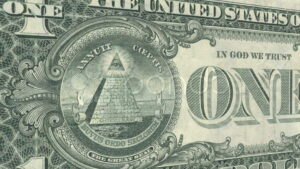Making a Living

credit: Adam Borkowski for Unsplash
“What do you do for a living?”
That’s a common question when people are introduced. A way of saying, “Who are you and what do you do?” “Where is your place in the social strata and how should I relate to you?” “Are you a doctor, a lawyer, an industry chief? An artist, tradesperson, a laborer? God forbid, are you unemployed?”
It’s as if where we toil defines who we are, that our work is our life and our reason for living. It suggests our being is justified and our worthiness is determined by our labor.
Conversely then, if you’re not “making a living,” if you’re out of work, unemployed, on welfare, homeless, your being and worthiness are called into question. If work defines who we are, does it follow that not working is unbeing?
There’s certainly a case to be made that we treat the cronically unemployed, the homeless, the economically least among us as inconsequential except for the inconvenience they represent. Whatever assistance we provide them seems always to be draped in demeaning, dismissive context. As if poverty isn’t painful enough.
People who exist on the next rung up the ladder are systematically exploited by the money people, the banks being perhaps the most egregious example of the practice, although payday loan operations are even worse. They at least are forthcoming about their purpose: loaners of last resort that desperate people are driven to patronize. A modern mafia with paperwork and popup offices legally charging usurious rates. It’s the vigorish that gets ya!

credit: pond5.com
Banks, on the other hand, continue to hold themselves as paragons of capitalism. That illuminated eye at the top of the pyramid. Perhaps that’s exactly what they are. The question then is: what price capitalism? And who pays how much to service their needs?
Just google the esteemed corporate banking entity Wells Fargo if you want to muck your way through the singularly most despicable example of banking as pure, unfettered plunder. But banking practices everywhere are based on highly profitable exploitation of the people least able to afford those services and, unfortunately, most in need of them. Think credit card interest rates of up to 29.9% HERE and overdraft fees that earned the industry $15.47 billion in 2019 HERE. All perfectly legal, of course, ever since the laws were changed to increase the permittable level of pillage. Jesus drove the money-changers from the temple, but they came back with a vengeance.
The reason that these practices proliferate is that fewer and fewer of those places where we labor provide anything like security in exchange for your work. The majority of Americans are one paycheck from homelessness HERE. More of our work than ever doesn’t pay even enough to live on, requiring second and even third jobs for basic subsistence HERE. So now it is credit that sustains most of us from day to day, against that carefully calculated time when something goes wrong, you can’t make the scheduled payment, and our creditors reap a bounteous harvest.
Franklin Delano Roosevelt was unabashed in stating companies that couldn’t get by without providing substandard wages didn’t deserve to exist. “I mean more than a bare subsistence level,” he said. “I mean the wages of decent living.” One wonders what that statesman would think of our economic situation today, where fewer and fewer people get very rich by paying more and more workers not even enough to cover their bills, let along establish a secure future.

Since the great conservative movement of the 1980s workers have clung to crappy jobs, knowing the safety net was shredded and employers held the upper hand. Now, post-pandemic, that is changing and the economy will be the better for it HERE. Even as higher wages are offered, more workers are taking a pass.
There are any number of reasons why the workforce is reconsidering the value of its labor. Some of the most interesting can be called Pandemic Epiphanies HERE. The unplanned, unprecedented, and lengthy pause in the rat race gave many of us a unique context in which to think. While the richest among us paused not at all and got richer still HERE, and some of the mostly poorly paid among us provided essential services at great risk to their health and safety HERE, the rest of us could weigh our daily habit of work on the grand scales of life and death.
Given time to sit and think, stepping back from the daily headlong plunge into “making a living,” that pause in the maelstrom of free enterprise, and savoring the unique stillness of the moment, we could consider not just the need to work, but also the meaning of work to us, to who we are, and what it is worth. It has been a revelation.
There has been lots of thinking previously about different ways to conduct that “part” of our life. For the first time, though, many of us have had time to consider them. Working less and the dignity of work are discussed HERE. Reasons to moderate the time we spend working, what effort we devote to building a career, to “what we do for a living,” can be seen HERE and HERE.
The trope about the Dignity of Work is being reexamined. Perhaps we will look at it in terms of what we accomplish for ourselves, our family, and our community – the quality of life it provides – rather than what it allows us to buy and the status it gives us relative to others.
And Time Magazine just named Elon Musk their Person of the Year. GMAFB.